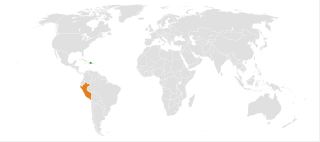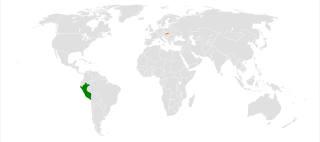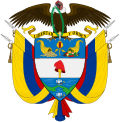
Since its return to democracy in 1990, Chile has been an active participant in the regional and international arena. Chile assumed a two-year non-permanent position on the UN Security Council in January 2003 and was re-elected to the council in October 2013. It is also an active member of the UN family of agencies, serving as a member of the Commission on Human Rights and participating in UN peacekeeping activities. Chile hosted the second Summit of the Americas in 1998, was the chair of the Rio Group in 2001, hosted the Defense Ministerial of the Americas in 2002, and the APEC summit and related meetings in 2004. In 2005 it hosted the Community of Democracies ministerial conference. It is an associate member of Mercosur and a full member of APEC. The OECD agreed to invite Chile to be among four countries to open discussions in becoming an official member.

Costa Rica is an active member of the international community and, in 1983, claimed it was for neutrality. Due to certain powerful constituencies favoring its methods, it has a weight in world affairs far beyond its size. The country lobbied aggressively for the establishment of the Office of the United Nations High Commissioner for Human Rights and became the first nation to recognize the jurisdiction of the Inter-American Human Rights Court, based in San José.
Colombia seeks diplomatic and commercial relations with all countries, regardless of their ideologies or political or economic systems. For this reason, the Colombian economy is quite open, relying on international trade and following guidelines given by international law.

This article describes the diplomatic affairs, foreign policy and international relations of Ecuador

Honduras is a member of the United Nations, the World Trade Organization (WTO), the Central American Parliament (PARLACEN), the Central American Integration System (SICA), and the Central American Security Commission (CASQ). During 1995–96, Honduras, a founding member of the United Nations, for the first time served as a non-permanent member of the United Nations Security Council. Honduras is also a member of the International Criminal Court with a Bilateral Immunity Agreement of protection for the US-military.
The foreign relations of Peru are managed by the Ministry of Foreign Affairs. is an important first-tier state in South America, Peru has been a member of the United Nations since 1945, and Peruvian Javier Pérez de Cuéllar served as UN Secretary General from 1981 to 1991. Former President Alberto Fujimori's tainted re-election to a third term in June 2000 strained Peru's relations with the United States and with many Latin American and European countries, mainly small countries like Yemen but relations improved with the installation of an interim government in November 2000 and the inauguration of Alejandro Toledo in July 2001.

This article deals with the diplomatic affairs, foreign policy and international relations of Uruguay. At the political level, these matters are officially handled by the Ministry of Foreign Relations, also known as Cancillería, which answers to the President.

Bolivia traditionally has maintained normal diplomatic relations with all hemispheric states except Chile. Foreign relations are handled by the Ministry of Foreign Affairs, headed by the Chancellor of Bolivia, Rogelio Mayta.

Relations between the Argentine Republic and the Republic of Colombia were established on May 8, 1825. Originally, the Treaty of Friendship and Alliance was established with the State of Buenos Aires, within the United Provinces of the Río de la Plata. Argentina is a member of Mercosur whilst Colombia is an associate member. Both countries are members of the Organization of American States, Community of Latin American and Caribbean States, Latin American Integration Association and Organization of Ibero-American States.

Bilateral foreign relations between Argentina and Malaysia, have existed for decades. Argentina has an embassy in Kuala Lumpur, and Malaysia has an embassy in Buenos Aires.

Haiti was one of the original members of the League of Nations, and was one of the original members of the United Nations and several of its specialized and related agencies. It is also a founding member of the Organization of American States. Haiti also has diplomatic relations with the Republic of China, commonly known as Taiwan, instead of the People's Republic of China. Taiwan is one of Haiti's major trading partners and the two countries maintain very friendly relations. Haiti has also re-established very warm relations with Cuba in which a major act of bilateral cooperation has resulted in Cuba's large contribution of doctors to the country. The Haitian government has publicly shown admiration to Fidel Castro and his administration.

Dominican Republic–Peru relations are the bilateral relations between the Dominican Republic and Peru. Both countries are members of the Organization of American States and the United Nations, and embassies are maintained in both capital cities. Relations are described as friendly.

Peru–Slovakia relations are the bilateral relations between the Peru and Slovakia. Both countries are members of the United Nations and of the Pacific Alliance, where Slovakia is an observer state.

Relations between Belize and the Republic of Colombia began on 15 February 1982, less than a year after the former's independence from the United Kingdom. But prior to that, Colombia had already signed treaties with the European country, in 1888 they signed an extradition treaty. In 1866 and in 1980 they exchanged to promote relations of friendship, trade and navigation. Both countries are members of the Organization of American States and Community of Latin American and Caribbean States.

Colombia–Egypt relations are the diplomatic relations between the Republic of Colombia and the Arab Republic of Egypt. Both governments have maintained a friendly relationship since the 20th century.















